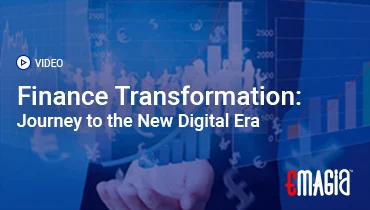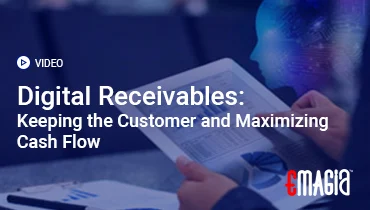The requirements for einvoicing are evolving rapidly across the globe in 2026, driven by legislative mandates, technological advancements, and a growing need for secure and efficient invoice processing. This guide will take you through everything you need to know about electronic invoicing compliance, mandatory formats, automation tools, and best practices to meet modern business and tax compliance needs.
Understanding E-Invoicing and Its Requirements
E-invoicing refers to the electronic generation, transmission, and processing of invoices in a structured, machine-readable format. The requirements for einvoicing 2026 vary by region, but the core objective is to enhance transparency, improve compliance, and streamline payment processes.
The Meaning and Definition of E-Invoicing
Electronic invoicing compliance is increasingly becoming mandatory for B2B and B2G transactions. The definition encompasses legal requirements, technical standards, and process protocols required for e-invoice acceptance.
Key Benefits of Meeting E-Invoicing Requirements
- Improved payment transparency
- Faster invoice processing
- Reduced errors and disputes
- Better compliance with tax regulations
- Real-time invoice reporting
Global E-Invoicing Requirements and Mandates
B2B E-Invoicing Mandates Around the World
From the EU’s EN 16931 directive to India’s GST e-invoicing compliance, global e-invoicing mandates 2026 reflect a unified push towards digital transformation.
EU E-Invoicing Directive EN 16931
The European Union mandates standardized e-invoicing formats to ensure consistency and compliance across member states.
German E-Invoicing Mandate 2026
Germany is implementing advanced e-invoicing legislation requiring structured formats such as XRechnung and ZUGFeRD.
India’s GST E-Invoicing Requirements
The Invoice Registration Portal (IRP) in India is central to GST compliance, requiring e-invoices in structured formats with mandatory validations.
E-Invoice Standard Formats and Compliance Requirements
Structured E-Invoice Format
Structured e-invoice formats allow automated processing and compliance checks. Formats include XML, JSON, XRechnung, and ZUGFeRD.
Machine-Readable Invoice Requirements
A key requirement for modern e-invoicing is a format that can be processed without manual intervention, improving efficiency and accuracy.
Hybrid Invoice Formats and Compliance
Hybrid formats combine structured data with human-readable presentation to meet diverse business and regulatory needs.
Technology and Software Requirements for E-Invoicing
E-Invoicing Software Requirements
Choosing compliant e-invoicing software involves understanding mandatory capabilities like structured formats, secure transmission, and integration with ERP systems.
API-Based E-Invoicing Solutions
API-based solutions enable real-time invoice exchange and compliance with government mandates without disrupting existing workflows.
Electronic Invoice JSON Format
JSON format is increasingly preferred for its flexibility and efficiency in data exchange between systems.
Automation and Compliance in E-Invoicing
Electronic Invoice Processing Automation
Automation reduces manual intervention, ensures accuracy, and accelerates the invoice lifecycle.
Invoice Digitization Requirements
Digitization is essential for compliance, enabling secure archiving and quick retrieval of invoices.
E-Invoice Authenticity and Integrity
Compliance requires ensuring that invoices are authentic and unchanged from creation to payment.
Regional Compliance Requirements for E-Invoicing
Global E-Invoicing Mandates 2026
Different countries have unique mandates, and understanding these is critical for multinational companies.
E-Invoicing in Accounts Payable and Accounts Receivable
Integration with accounts payable and receivable processes ensures end-to-end compliance and efficiency.
Best Practices for Meeting E-Invoicing Requirements
Tax Compliance and Secure Transmission
Ensuring compliance with local tax laws and using secure channels for invoice transmission are essential best practices.
Invoice Validation and Approval Process
Automated validation reduces errors, speeds up approvals, and maintains compliance.
Penalties for Non-Compliance in E-Invoicing
Non-compliance can result in fines, delayed payments, and reputational damage.
Future of E-Invoicing and Compliance Trends
Transition to Mandatory E-Invoicing
Mandatory e-invoicing is likely to expand globally as governments and businesses move towards fully automated financial processes.
Emerging Technologies in E-Invoicing
Machine learning, AI-powered invoice processing, and blockchain will define the next wave of e-invoicing compliance.
How Emagia Helps You Meet E-Invoicing Requirements
Emagia offers a comprehensive e-invoicing compliance solution with API-based integration, structured invoice formats, automated validation, and real-time reporting, ensuring full compliance with global mandates while optimizing accounts payable efficiency.
FAQs
What is the meaning of remittance advice in e-invoicing?
Remittance advice is a document sent by a buyer to a supplier detailing invoice payment information, essential for reconciliation and compliance.
What are the mandatory e-invoicing requirements in 2026?
They vary by region but generally include structured invoice formats, secure transmission, and real-time reporting to government portals.
How does GST e-invoicing compliance work in India?
GST compliance requires e-invoices to be submitted to the Invoice Registration Portal (IRP) in a structured format with mandatory fields.
What formats are used in e-invoicing globally?
Common formats include XRechnung, ZUGFeRD, JSON, and XML.
Why is invoice digitization important for compliance?
Digitization improves accuracy, ensures compliance, and enables fast retrieval and automation in invoice processing.



